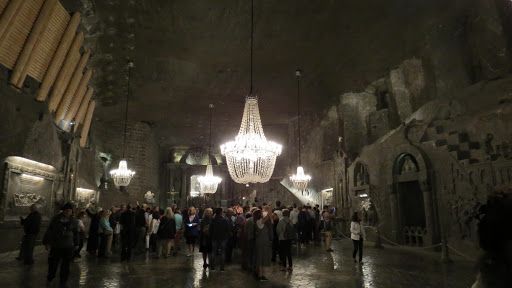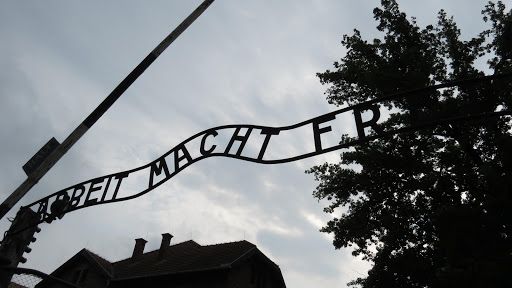Day 2 (Mon, Aug 27): A Tree Uprooted
In order to truly understand the Polish people-their mentality-you need to understand the historical events that shaped their world. Today, our private guide stated it beautifully: if the Polish aren't fighting with someone else, they are fighting amongst themselves.
You see, Poland (much like Korea, and I'm sure other countries countries on each continent) are geographically placed in between two other powers (Germans and Russians) who were always actively bickering and conquering. When they would meet, Poland would literally be stuck in the middle. They learned how to defend themselves, but obviously weren't always successful.
For example, at the end of the 1790s, there was no Poland for 123 years--they were ruled by someone else in very recent history (comparatively), and have only been an independent nation for 100 years, now. The entire country had been divided and dominated by outsiders for most of its history, and took heavy casualties in WWII. They were finally "liberated" from the Nazis by the Soviets, and communism was introduced. That's another story for (maybe) tomorrow.
Somehow, most likely only by the grace of God, their faith has prevailed. They are the most Catholic country in the world, and it's not only due to 96% of their population identifying as Catholic. Their faith is so prevalent, they have shrines to Jesus (crucifixes and crosses) or statues of our Mother, Mary everywhere. These shrines were usually placed at crossroads, where people, in this dangerous countryside, would pray for safety, asking God which road would be best for them to travel.

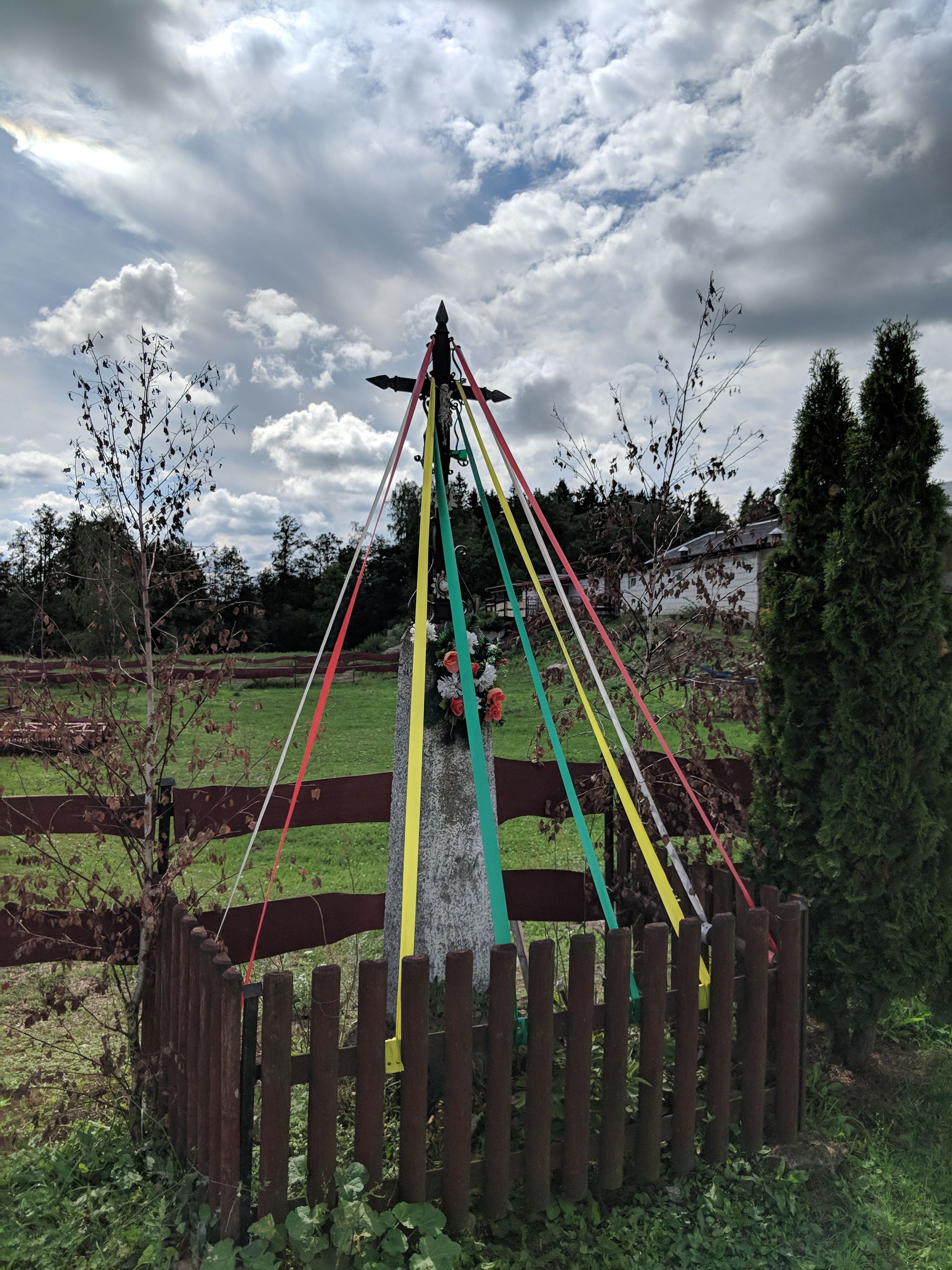
(Shrines)
Today, the day before our pilgrimage officially starts, we visited the villages of my ancestors: Chomontowo, Janowka, and Pruska Wielka. All are within a 3km drive [slow, country roads], and located close to the Lithuanian border.
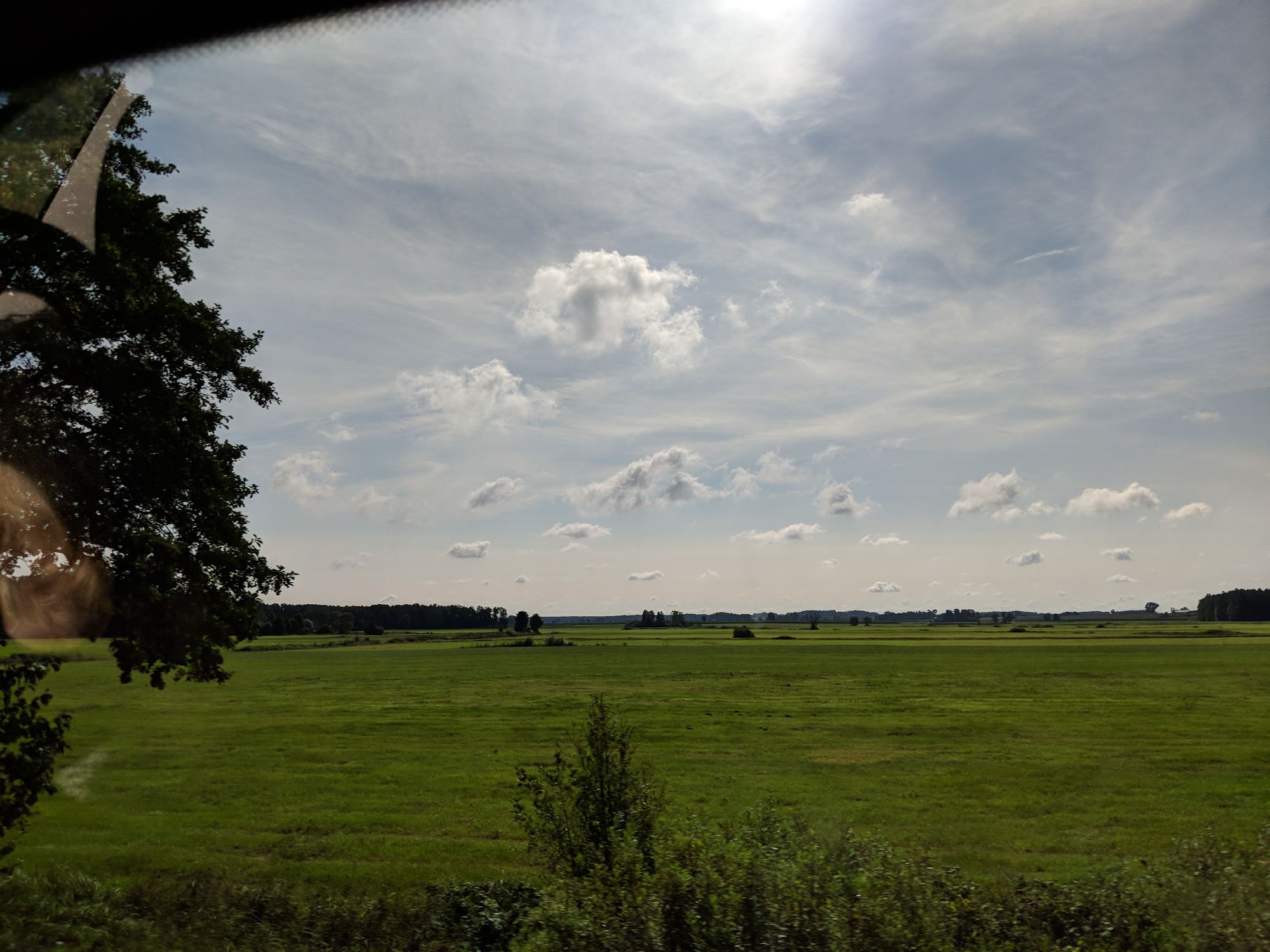
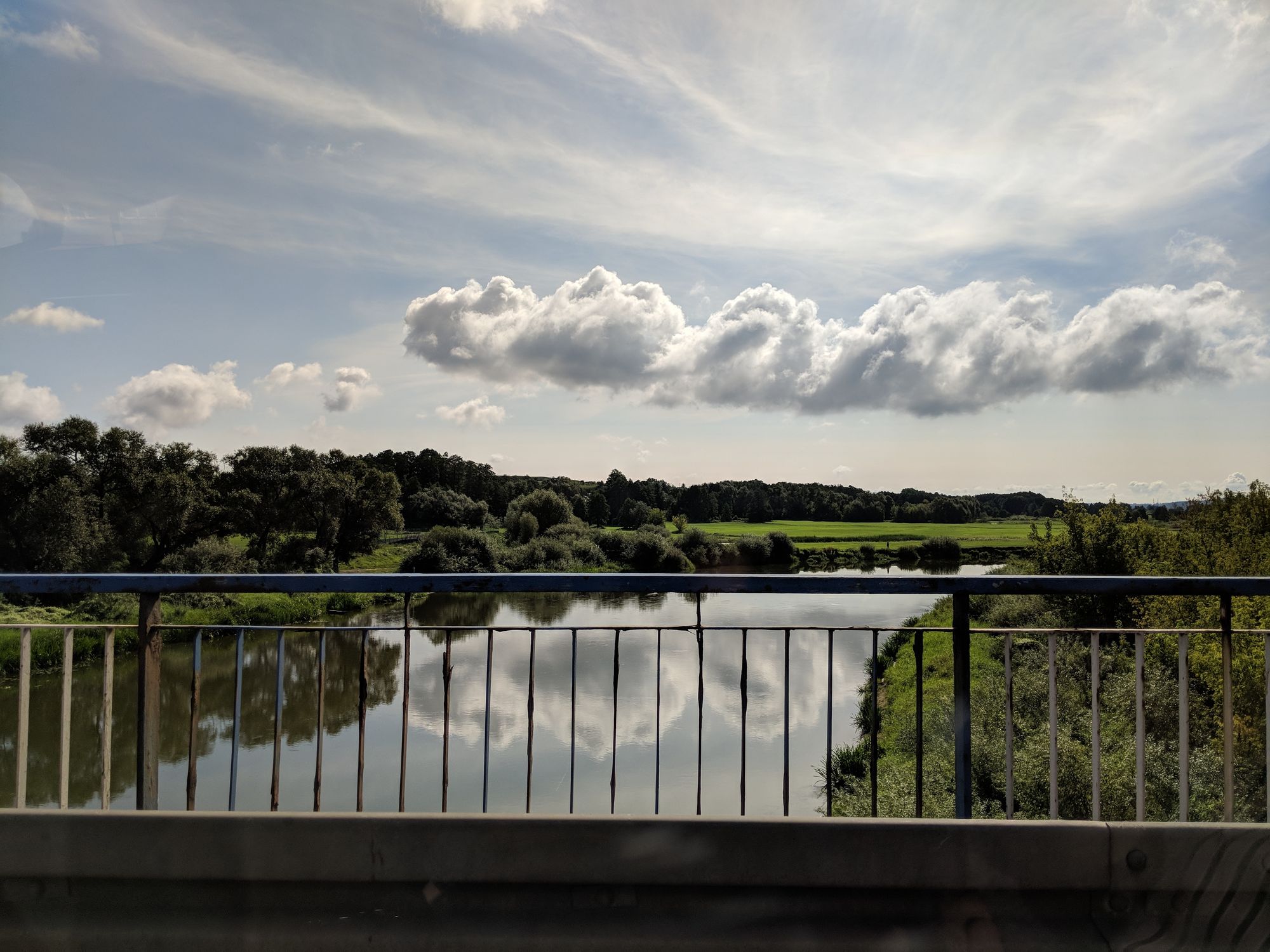
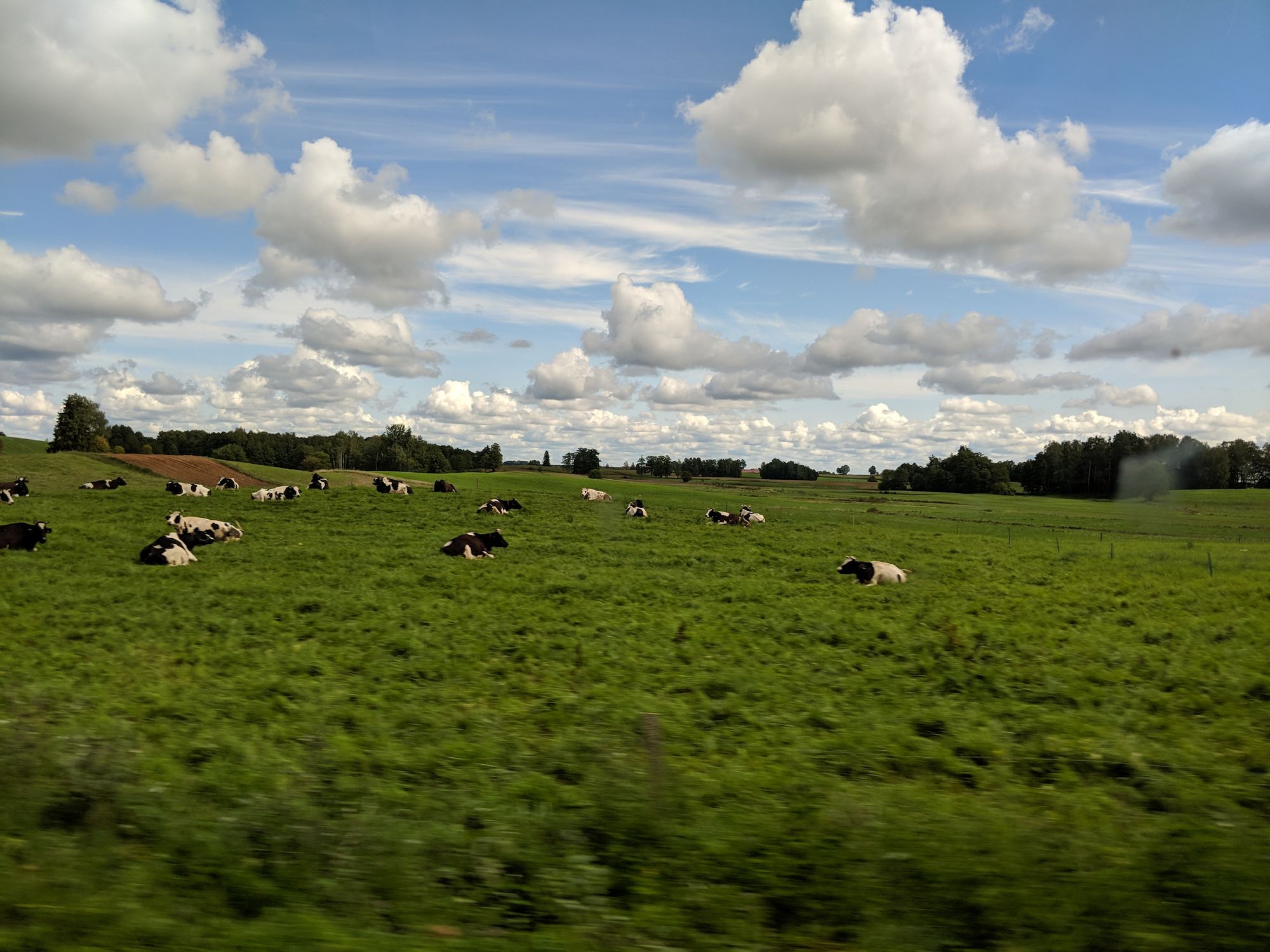
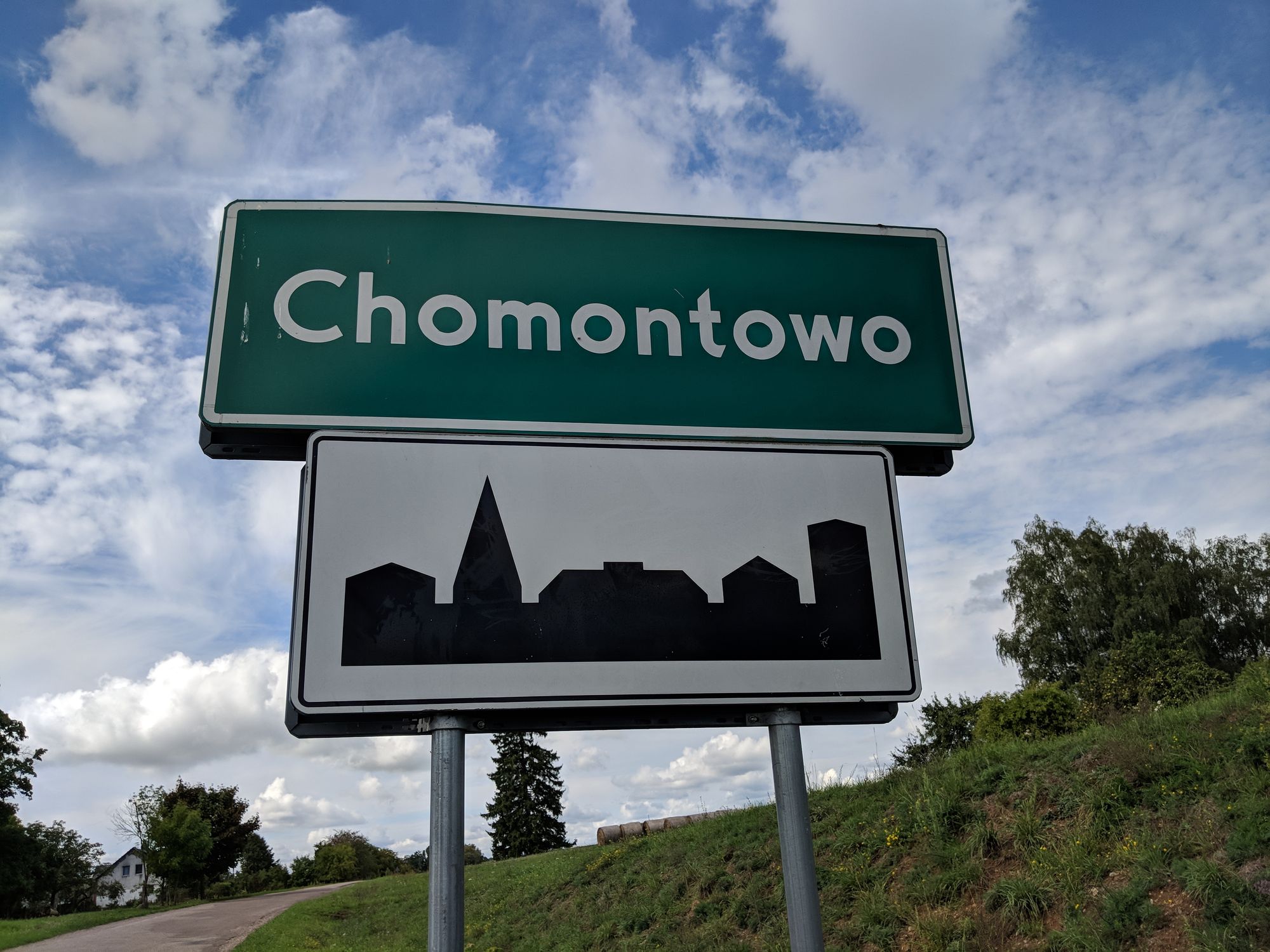
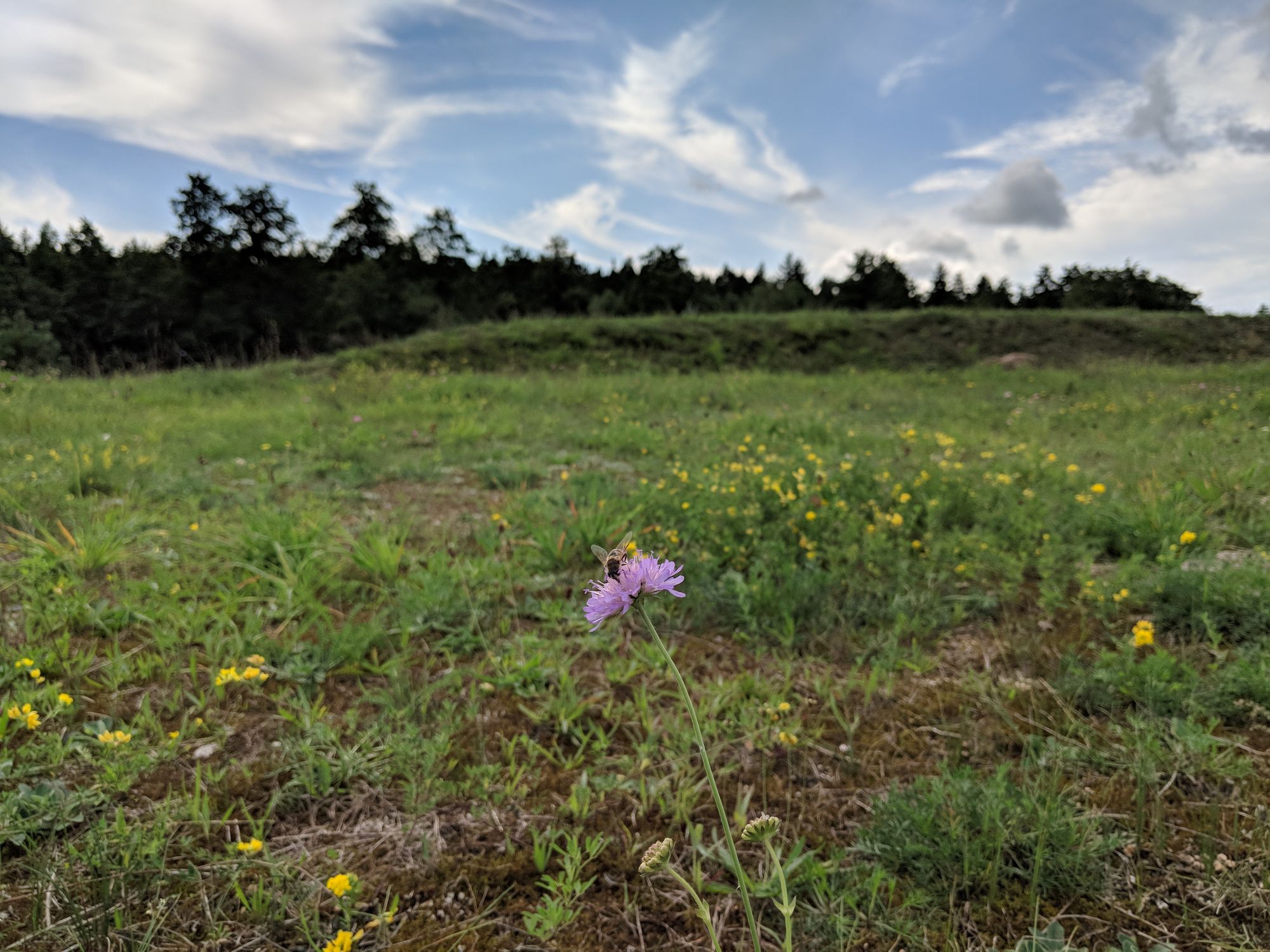



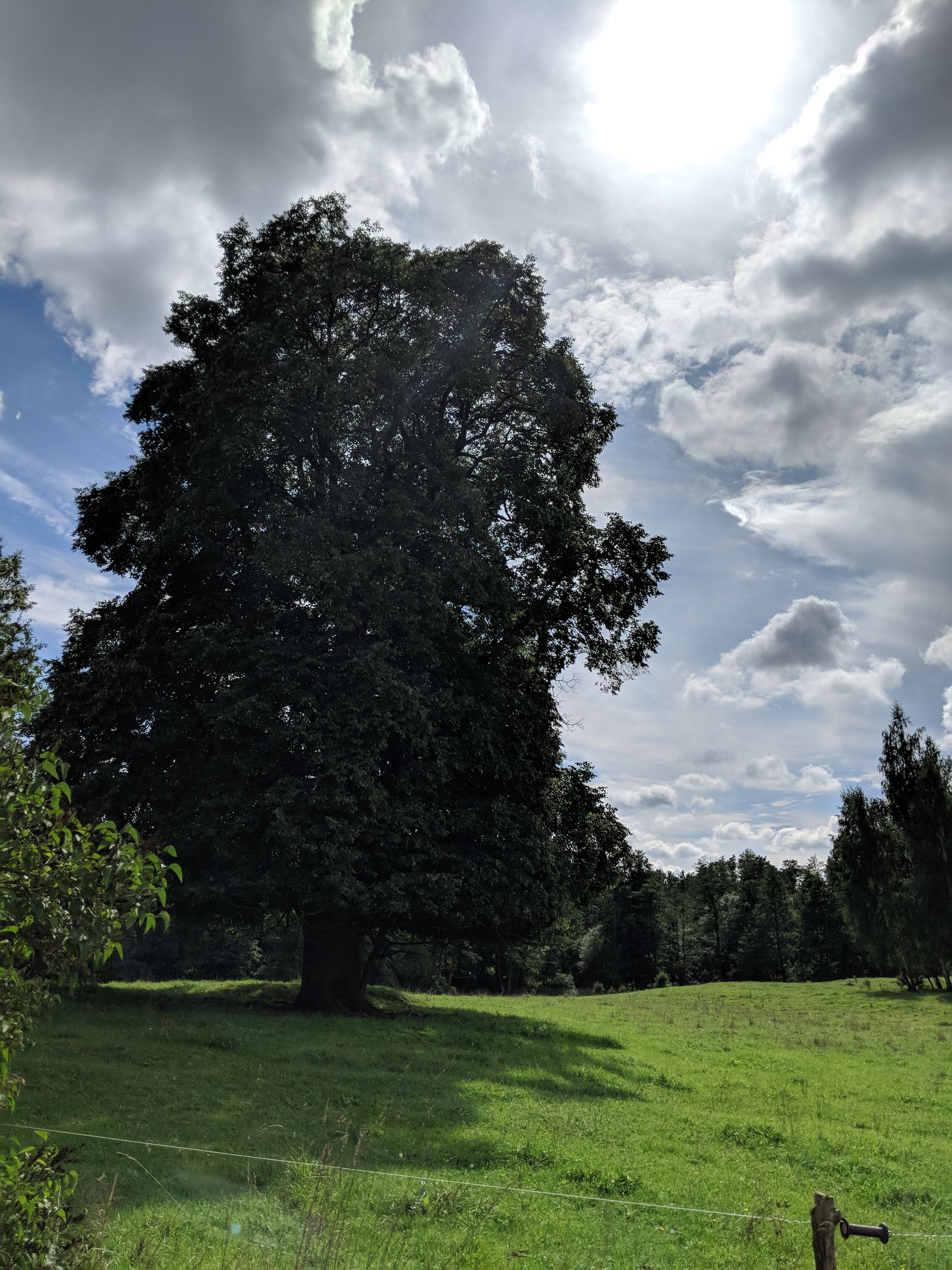
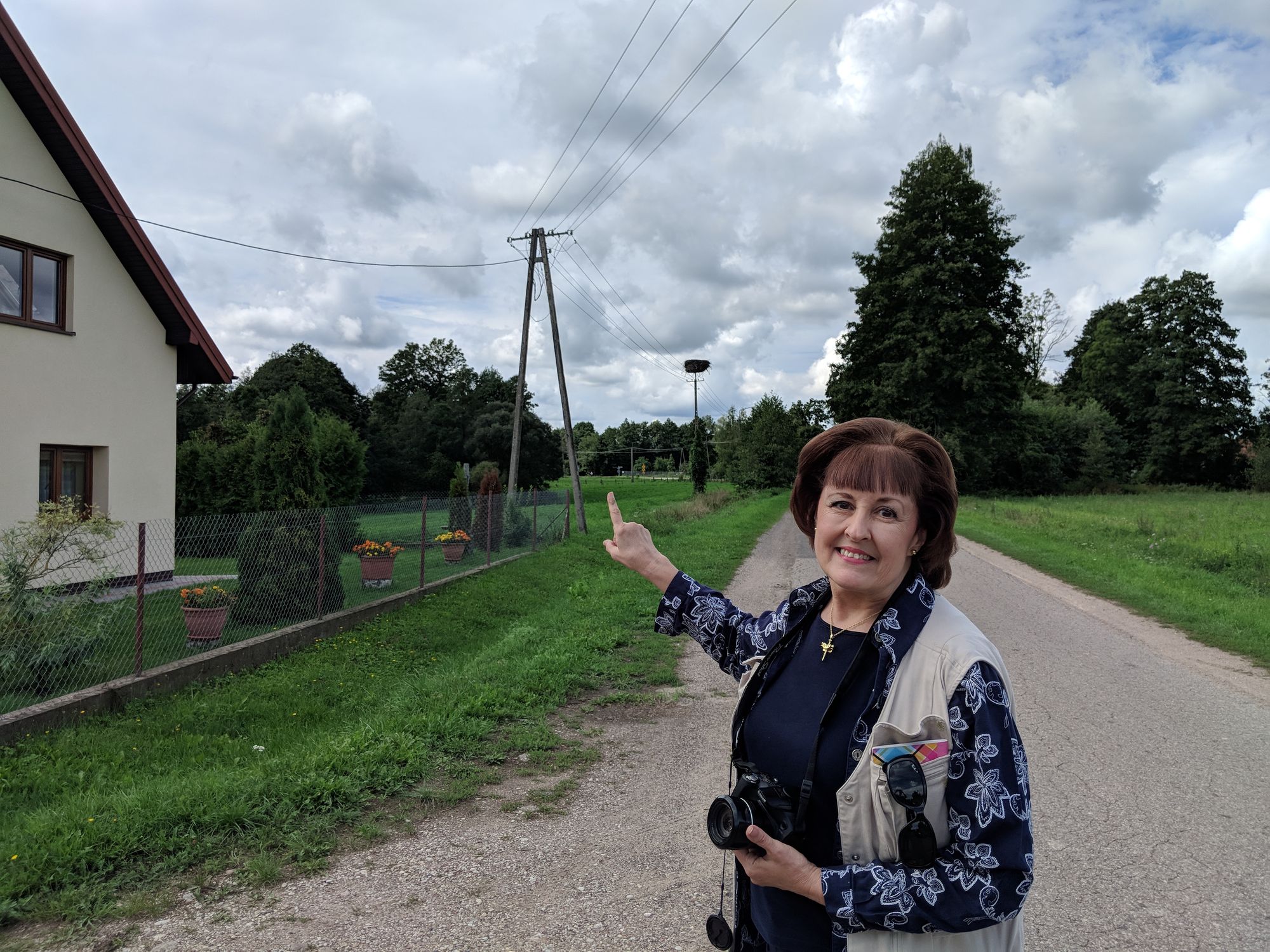
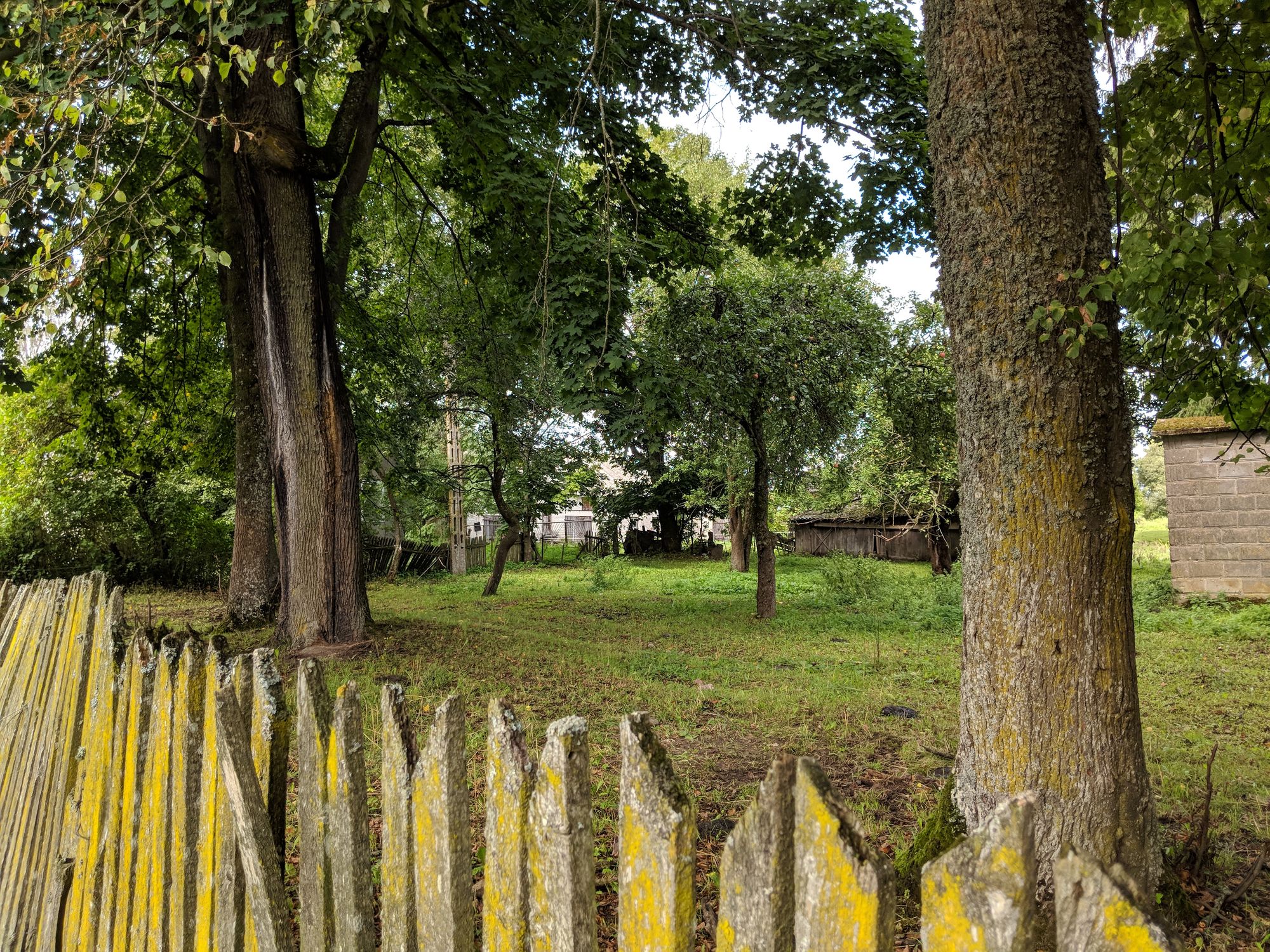
Chomontowo is a tiny, 1km long farming village. We walked the entire length! There's really nothing remarkable about this place other than it being an absolutely beautiful (and not as flat!!!) countryside.
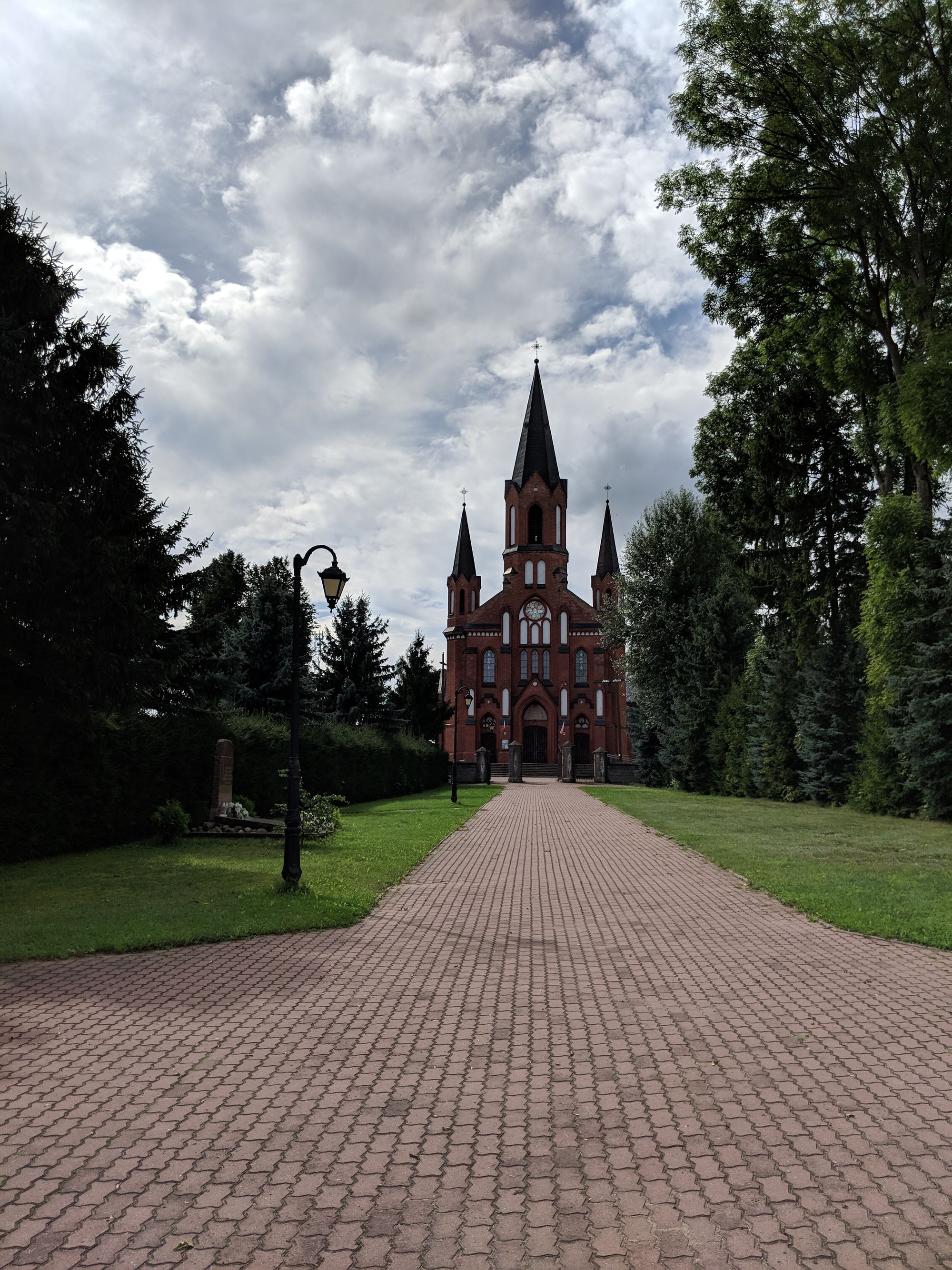
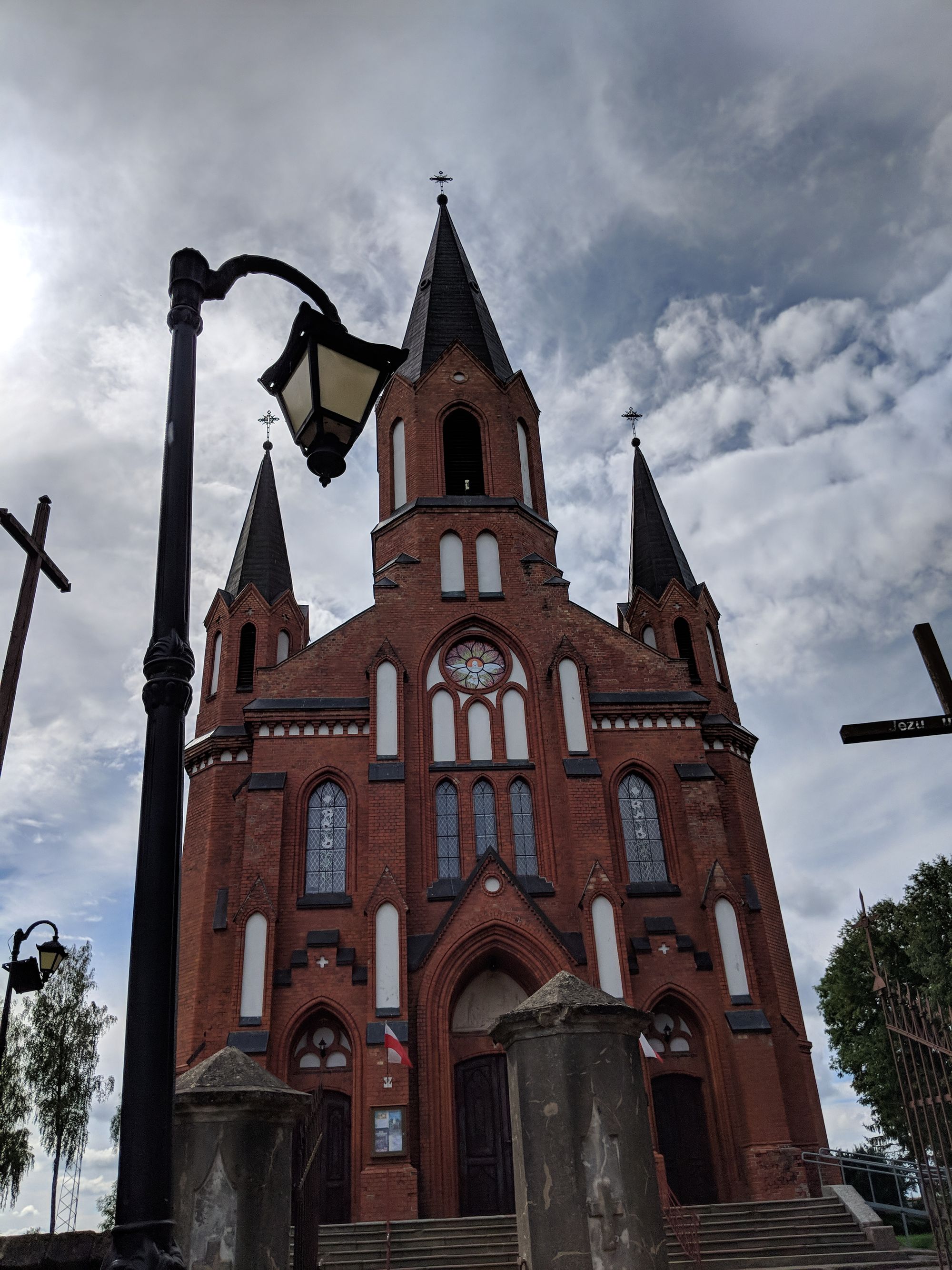

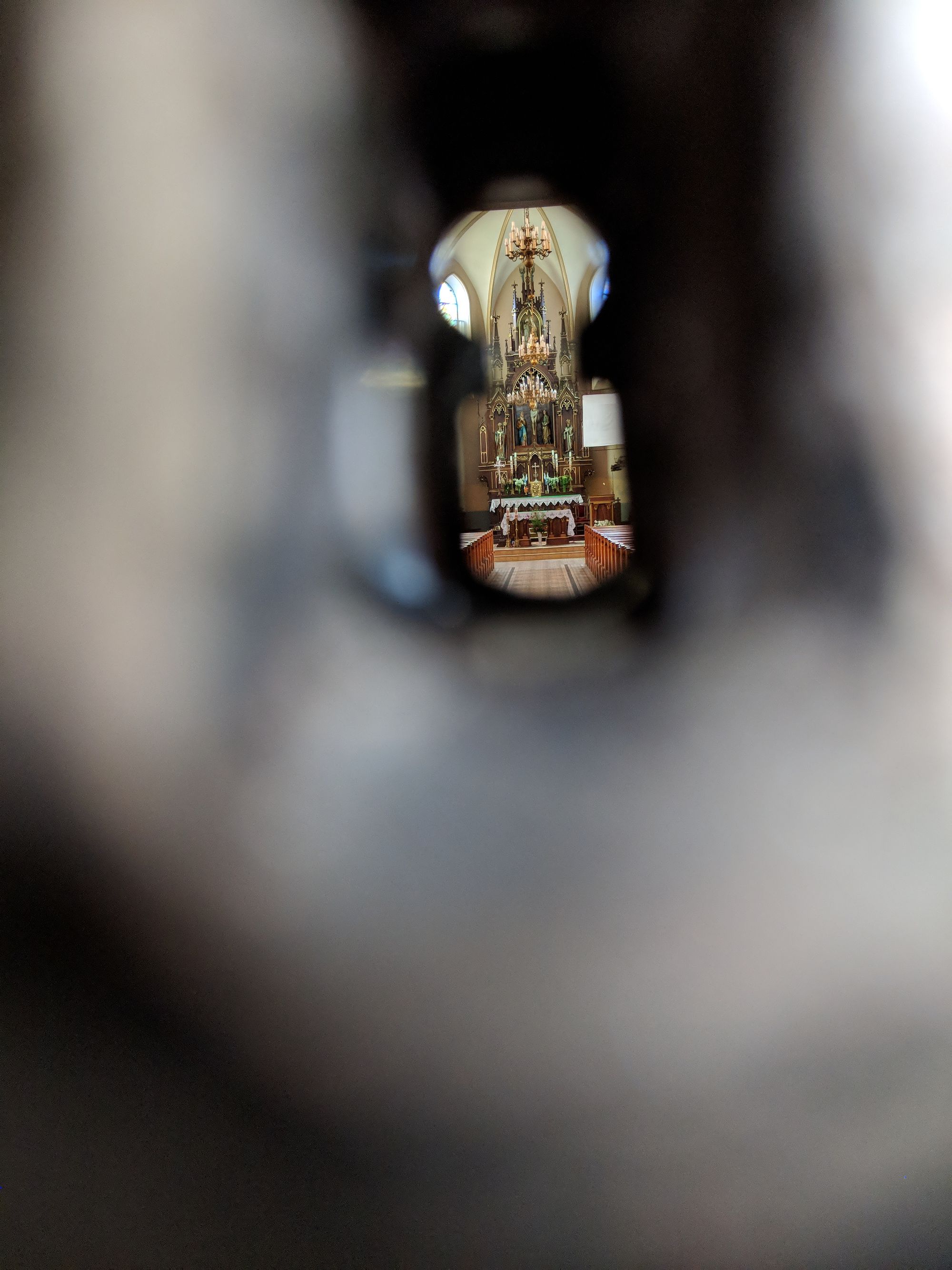
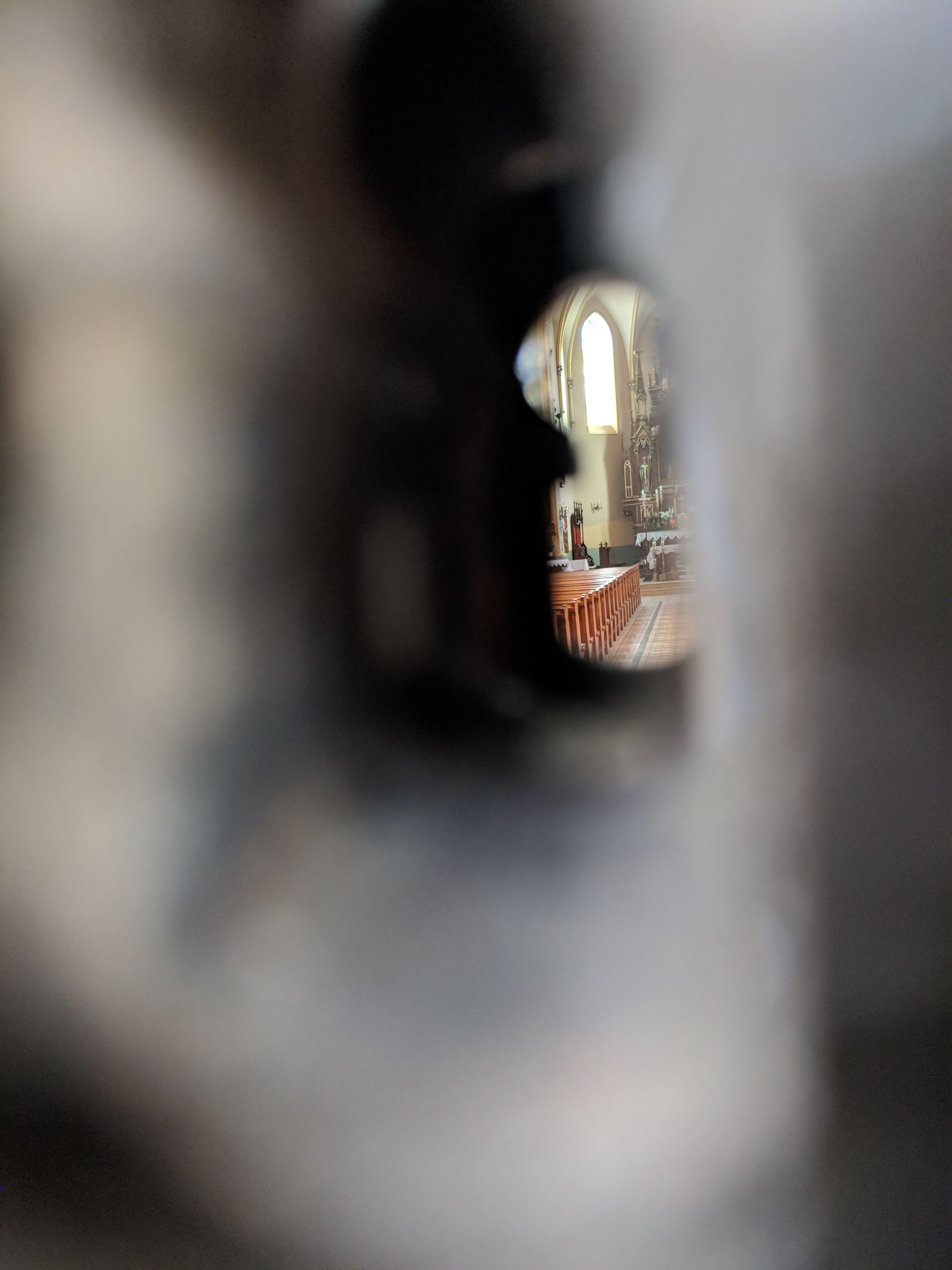
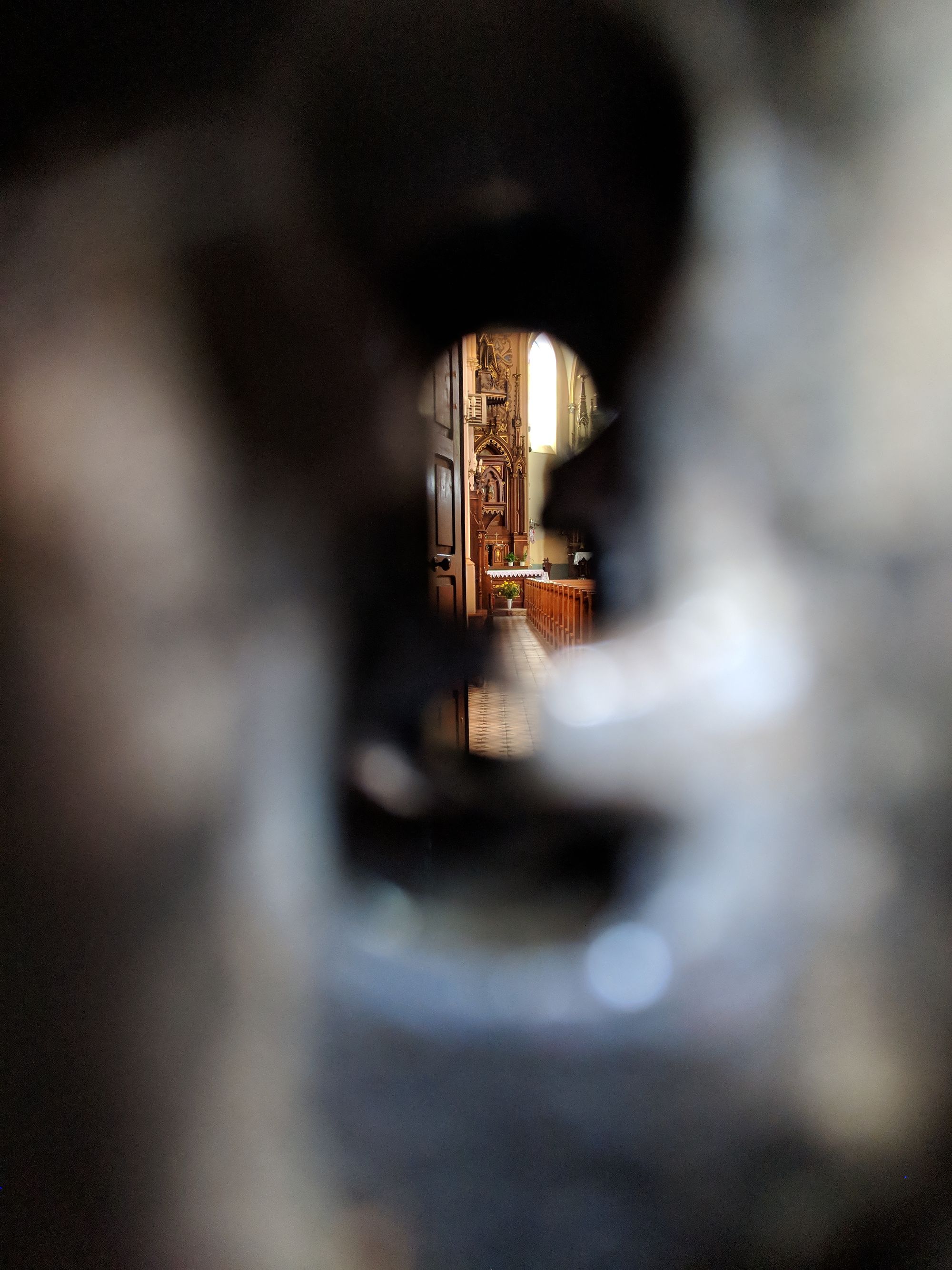
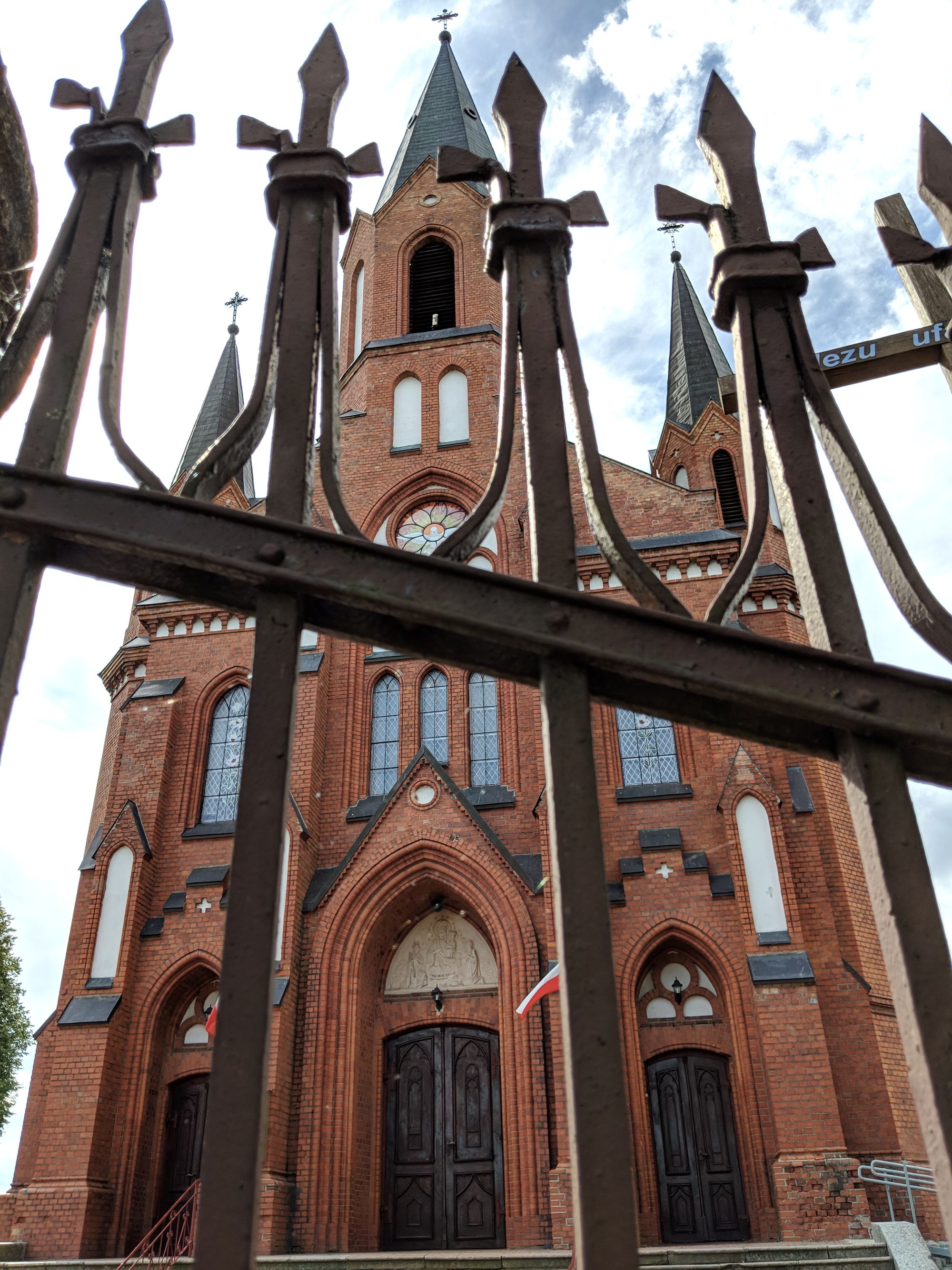
(Keyhole photos: church was locked tight. I noticed the awesome old-style keyhole, and so took photos!)
In Janowka, my mom wanted to stop at the local church (see above photos). The original burned down, but the one was still old enough that my great-grandfather could have attended it. When we arrived, we saw a monument, and did some quick research about what it was.

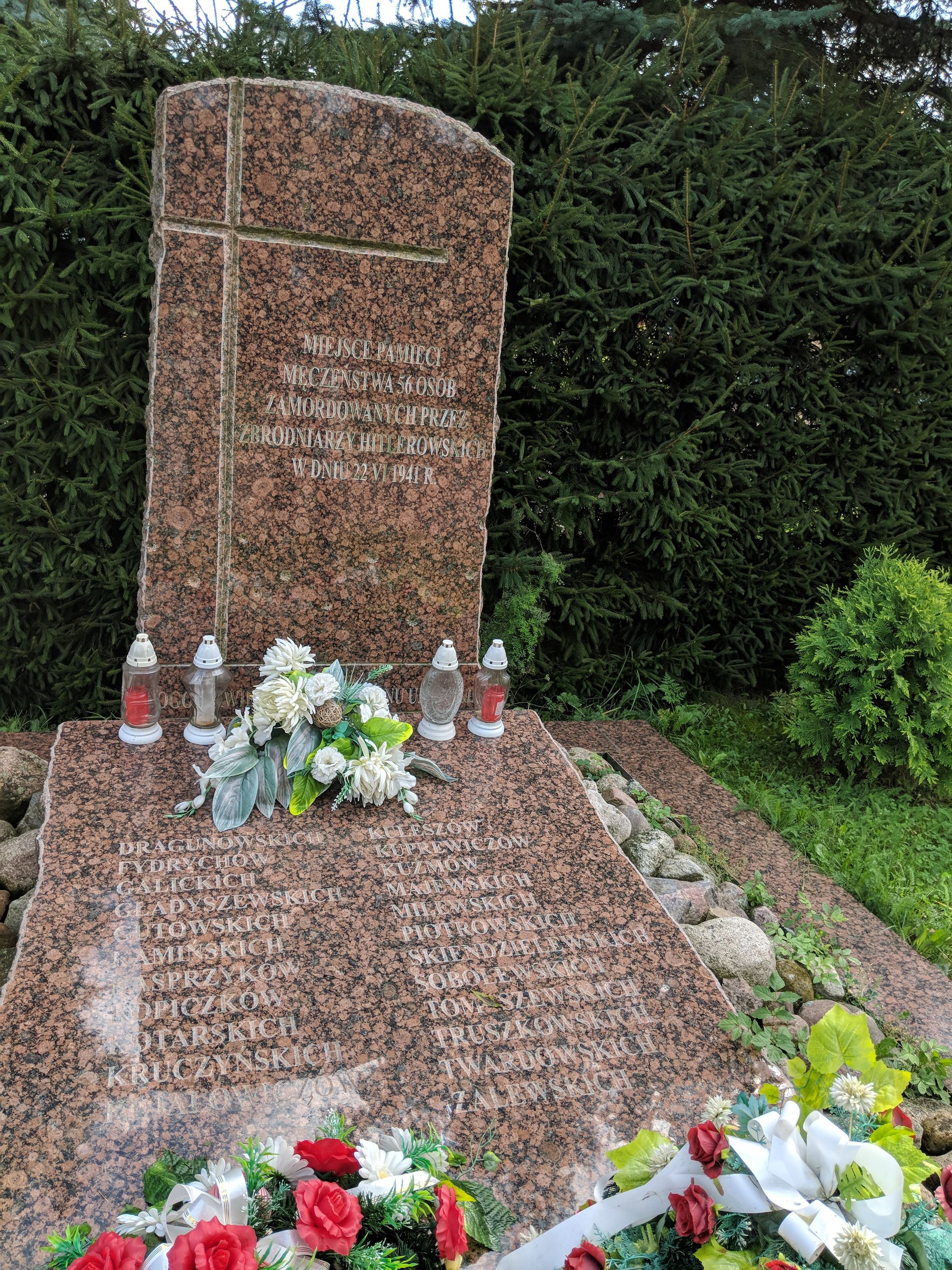


An aside: later tonight (before this writing), my genealogist aunt discovered that WWII took a huge toll on our family. Had my great-great-grandfather not left (he did not want to be conscripted into the Russian army), I may not be here. I wish I'd known yesterday, so I could have asked my Polish cousins how their branch survived (any stories passed down).
This monument is dedicated to all those who lost their lives in 1941, when the Nazis executed 57 people, 10 of which were children under the age of 14. 53 buildings and 140 farm buildings were burned down.
Why were they executed? They were accused of helping the Soviets.
On this monument with 23 last names, 10 of those are on our family tree. Yes, some of them may be great and great-great aunts and uncles... But... half of these names are of my family.
To add insult to injury, the cemetery was razed in 1945, when the Nazis and Russians converged over it. Only a handful of graves from before 1945 still remain. We didn't spend all day looking (especially not after two people tending to their family graves informed us of that bit of history), but we didn't find any graves with our family names on them. Well, maybe one with "Kalinowski" on it, but that's as common as "Smith" in the US.. Plus, he died in 1985; there's no telling if he was related.
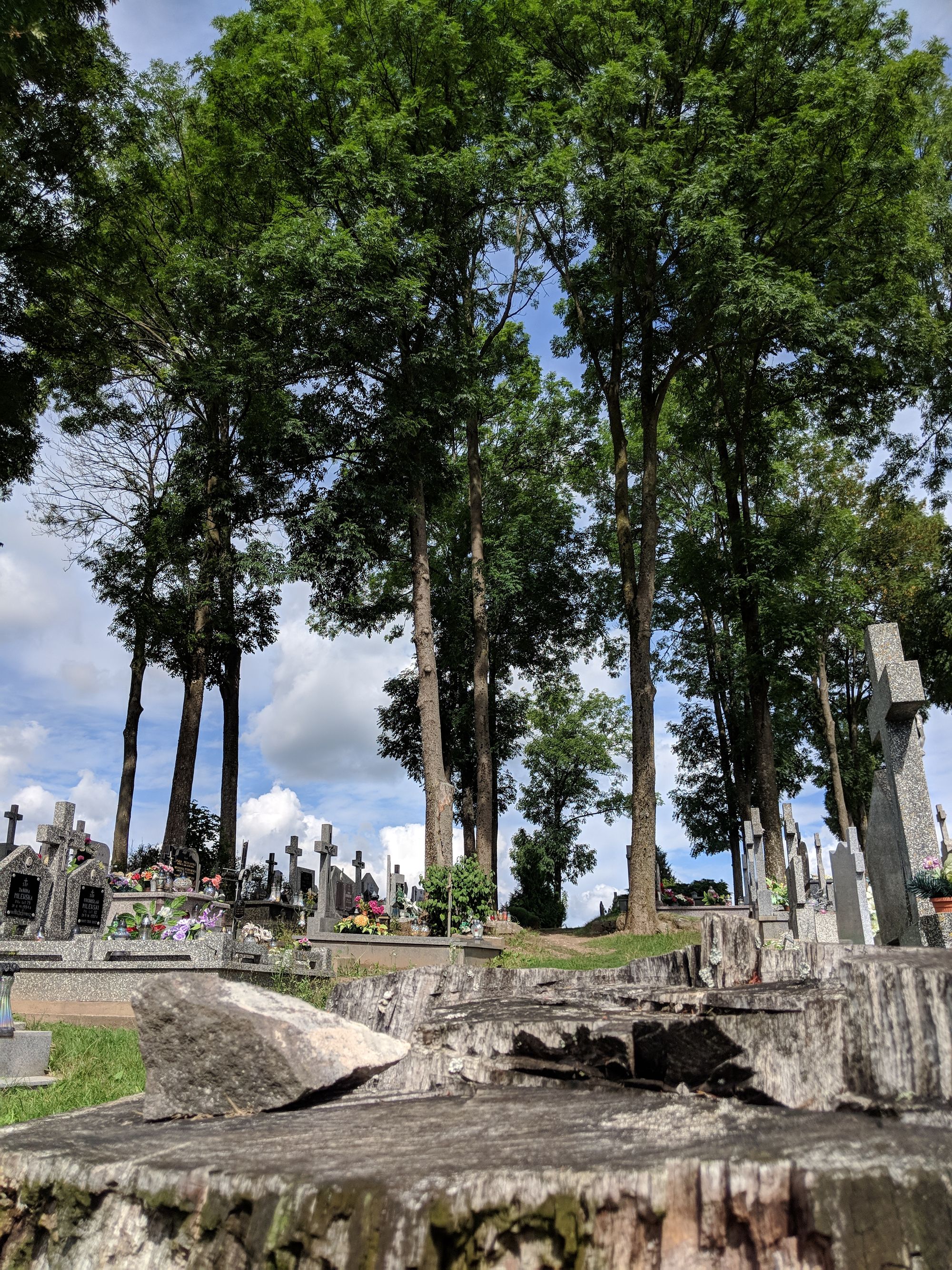
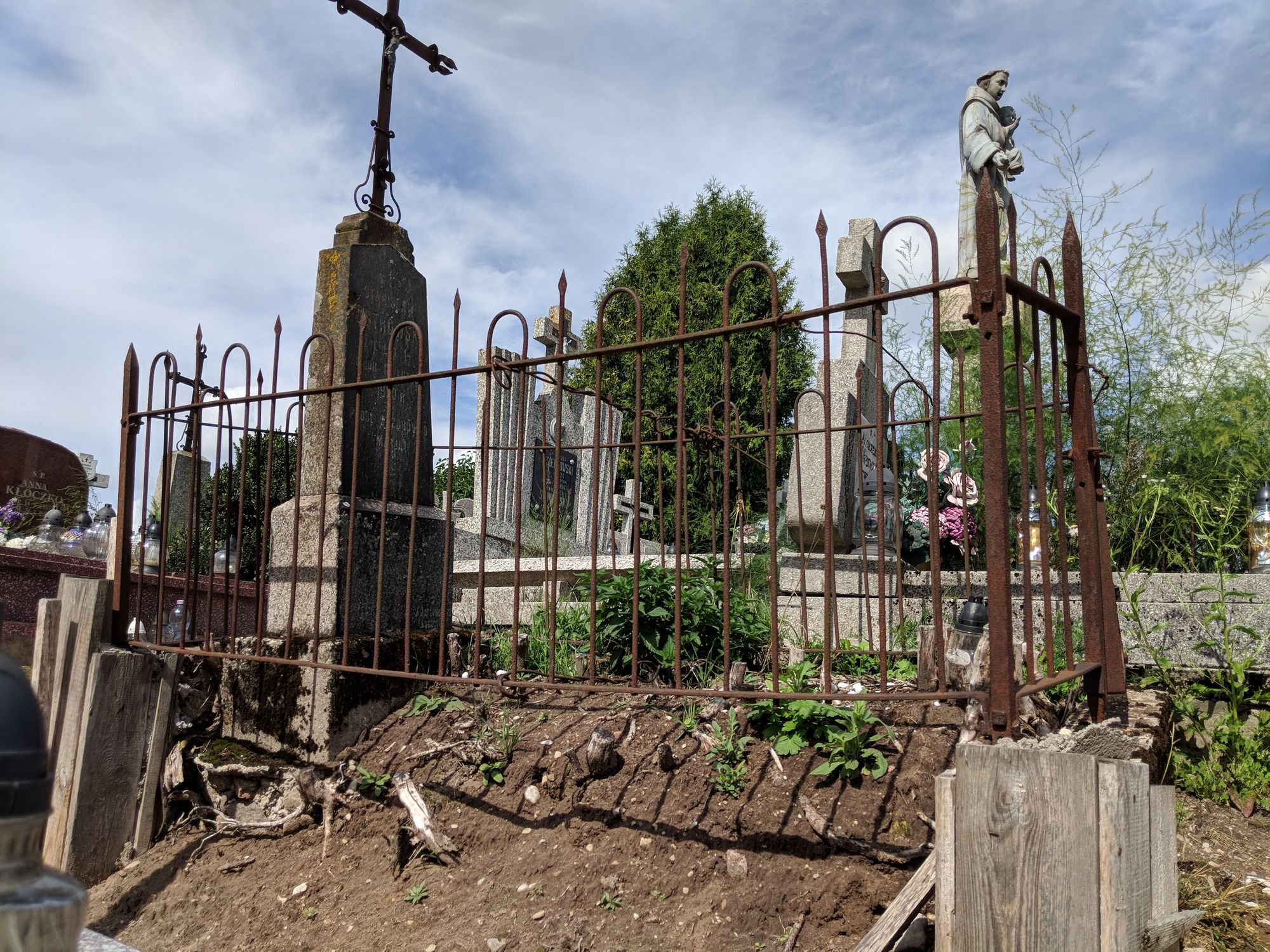

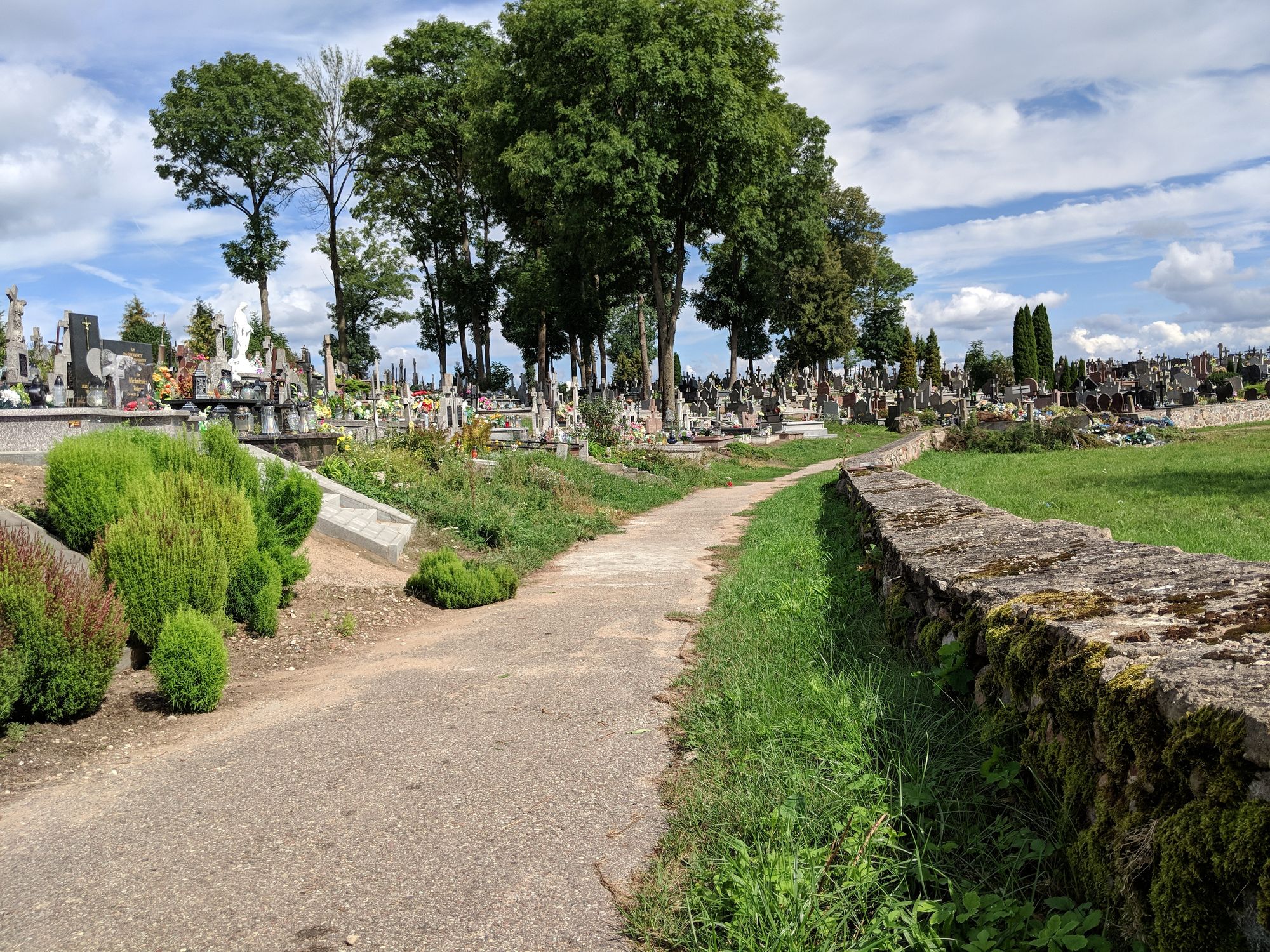
Zoom in on the photo of Saint Antony, above. That gravestone, with statute of Saint Anthony, was used as target practice.
On to the next town! Pruska Wielka, too, is a tiny farming community. However, they had a small grocery store! Mostly snacky edibles and alcohol. Not much else. My mom shared a photo.
While buying some Polish goods, we communicated with a local worker in--get this--not Polish or English, but German! I understood everything he said, but had to have my mom answer. I couldn't remember how to say, "We lived in Germany for 6 years."
This gentleman had worked in the state of Hessen for 3 years. We used to live there, too. I tried to tell him I was 5-11 years old when we were there. It wasn't exactly a sentence.
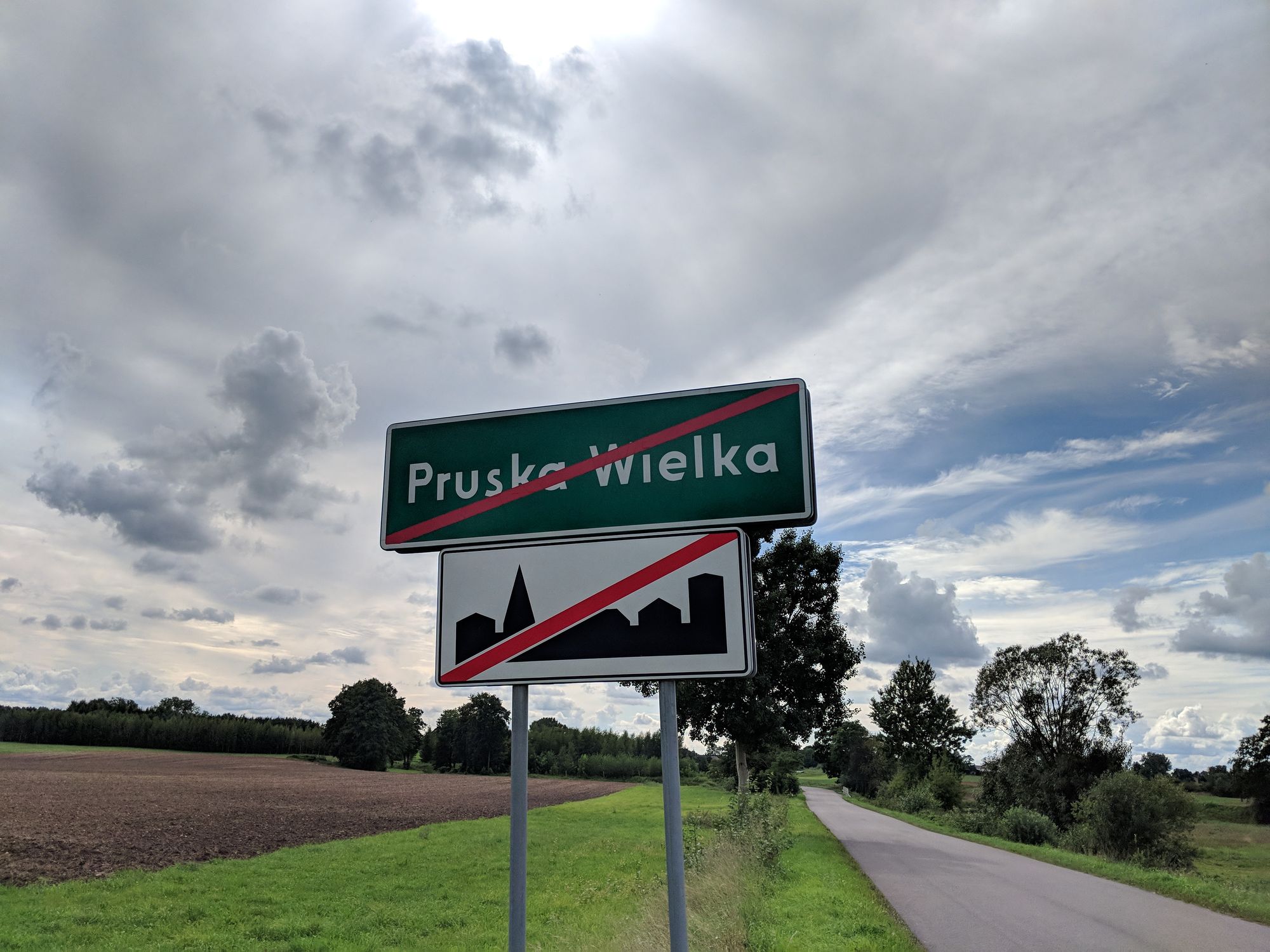
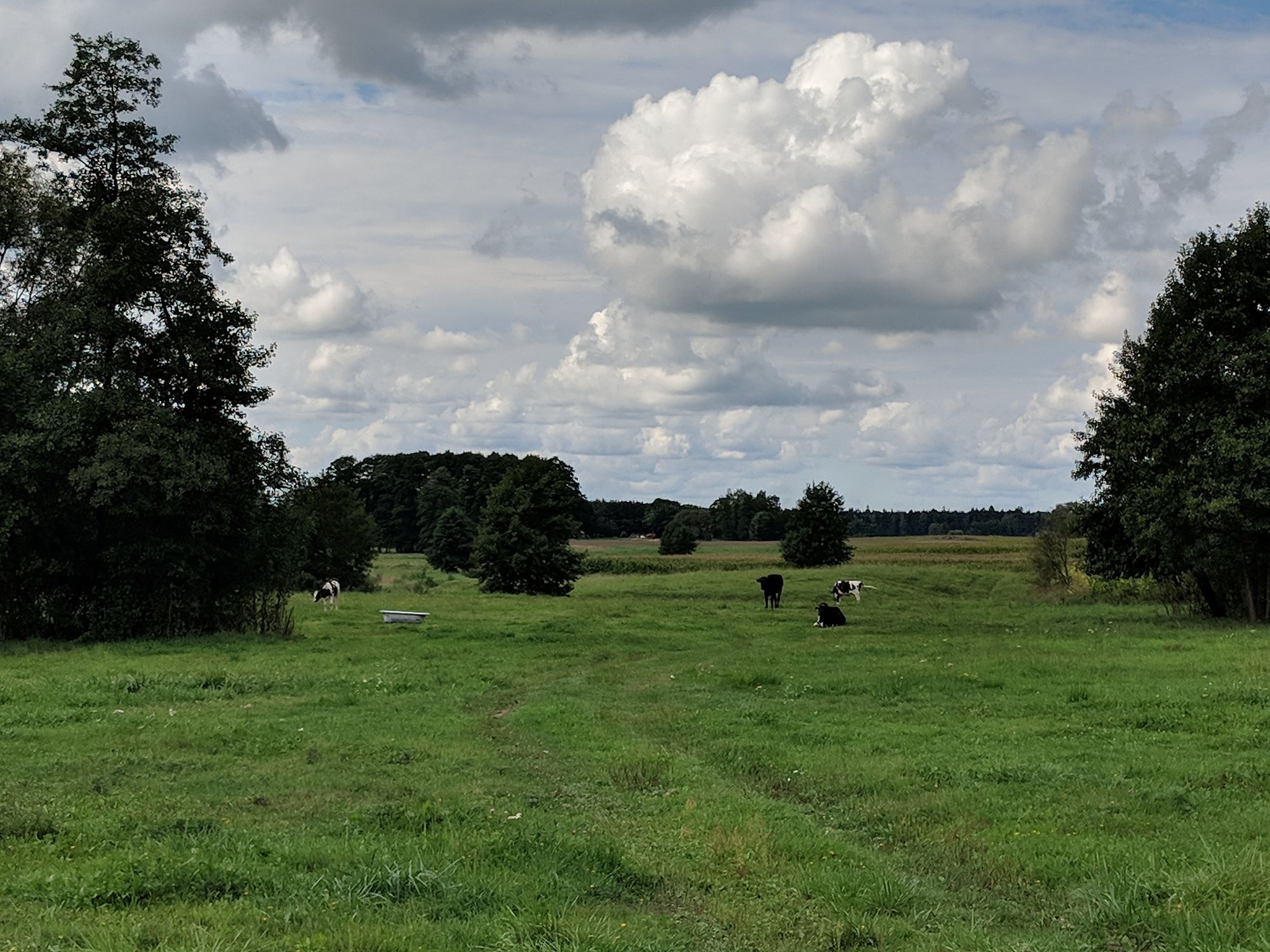

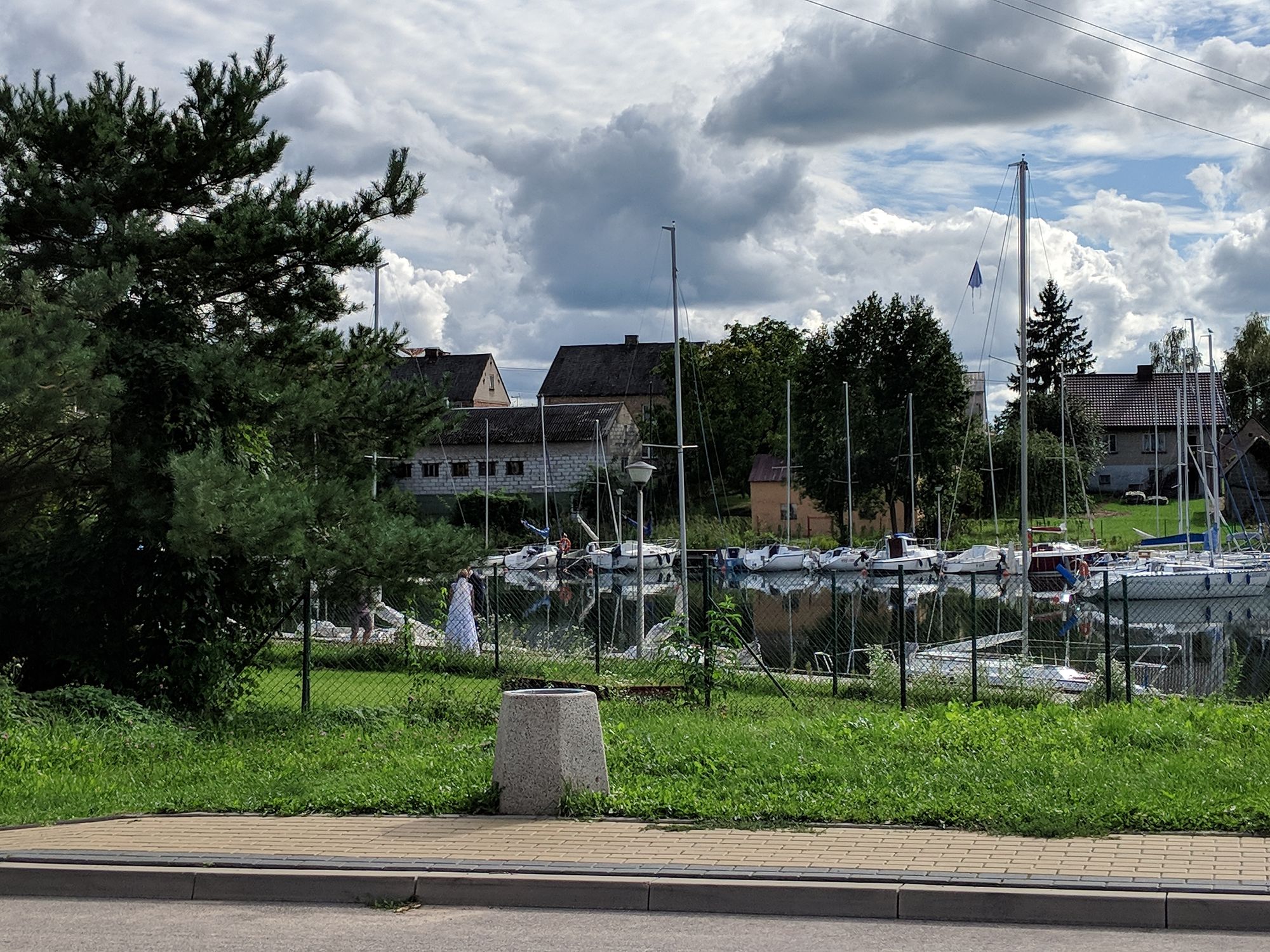


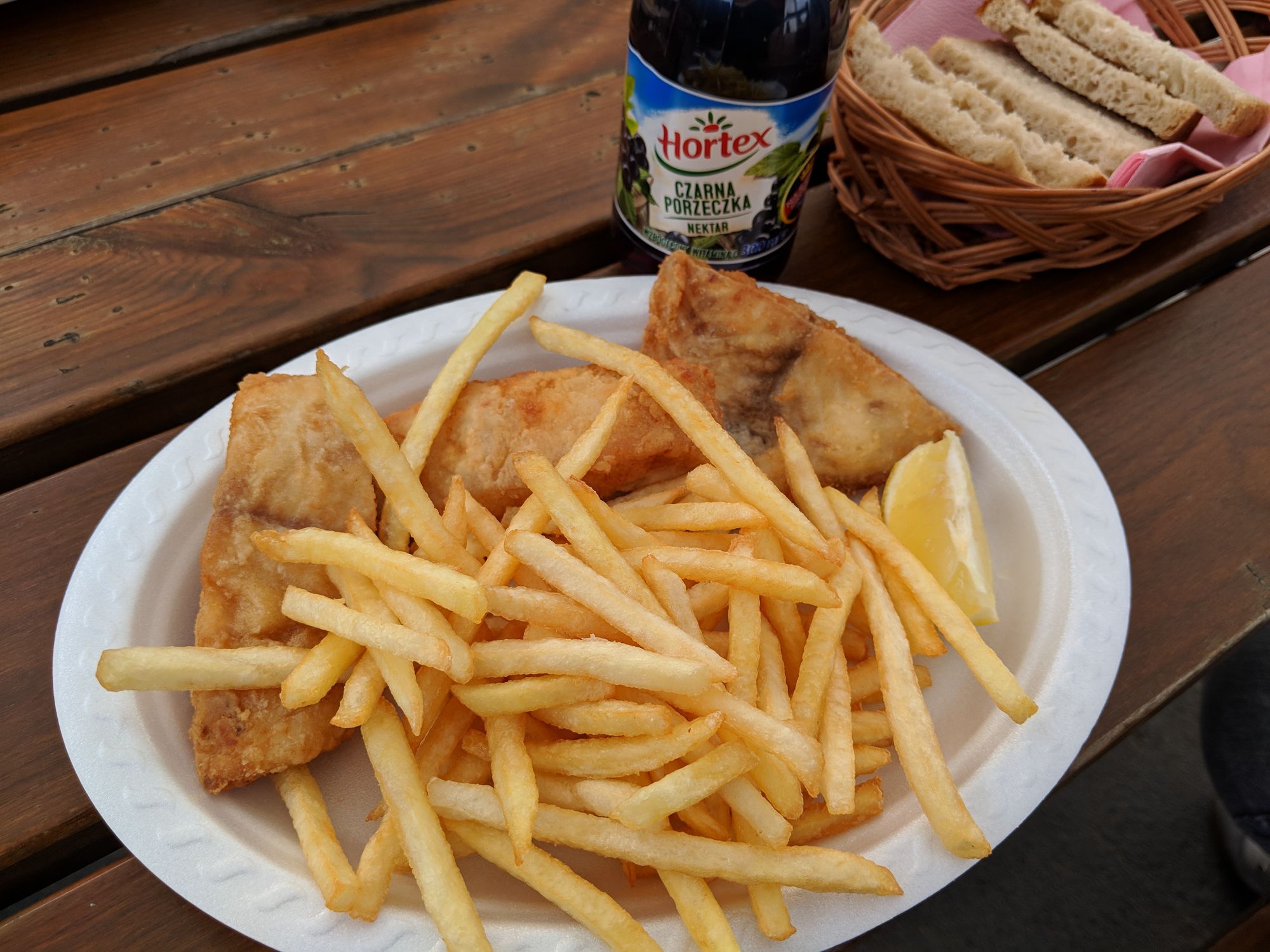
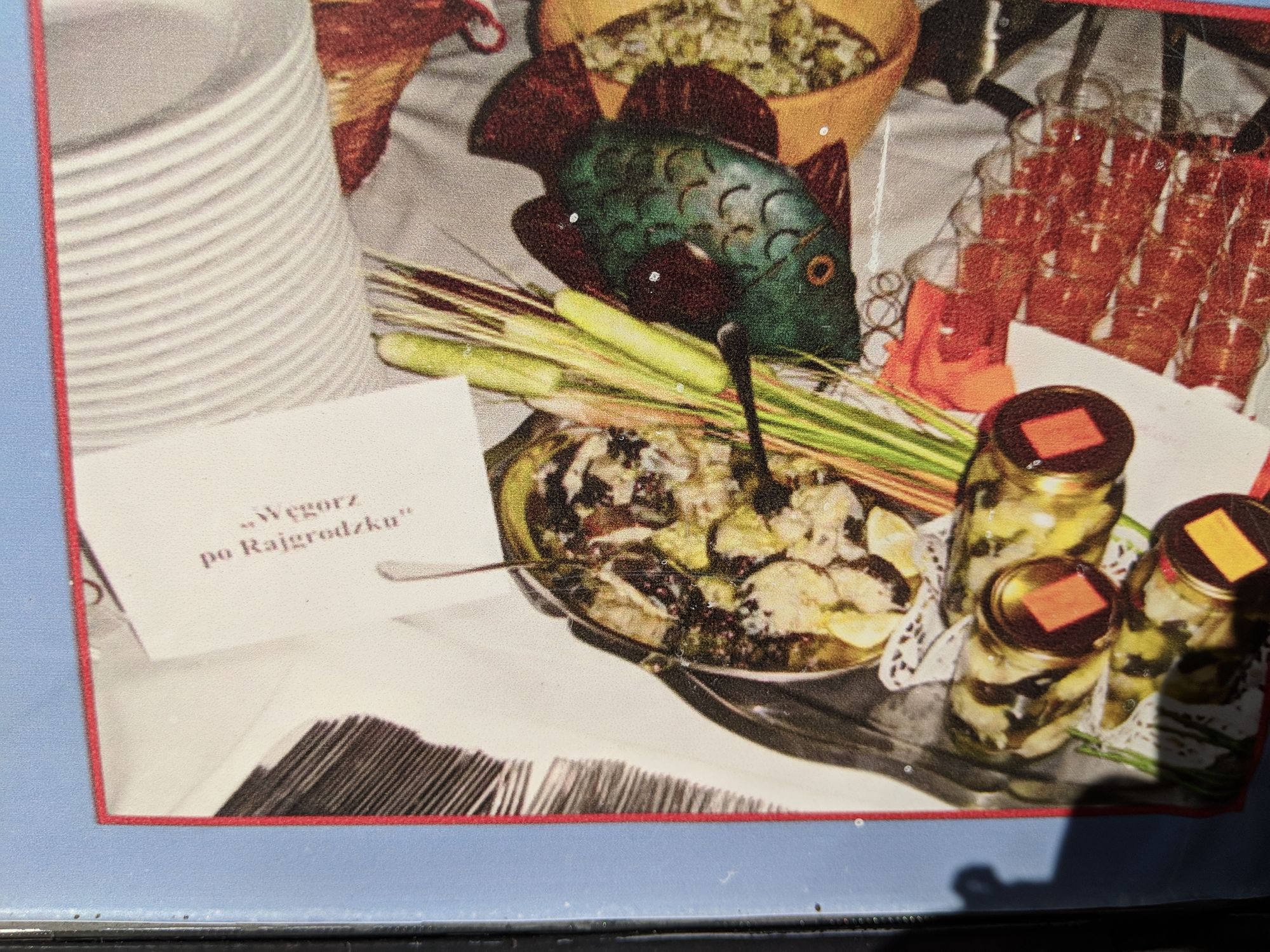
After that, we headed back to Warsaw, only stopping for dinner and a 1-hour [complete standstill] traffic jam-accident.

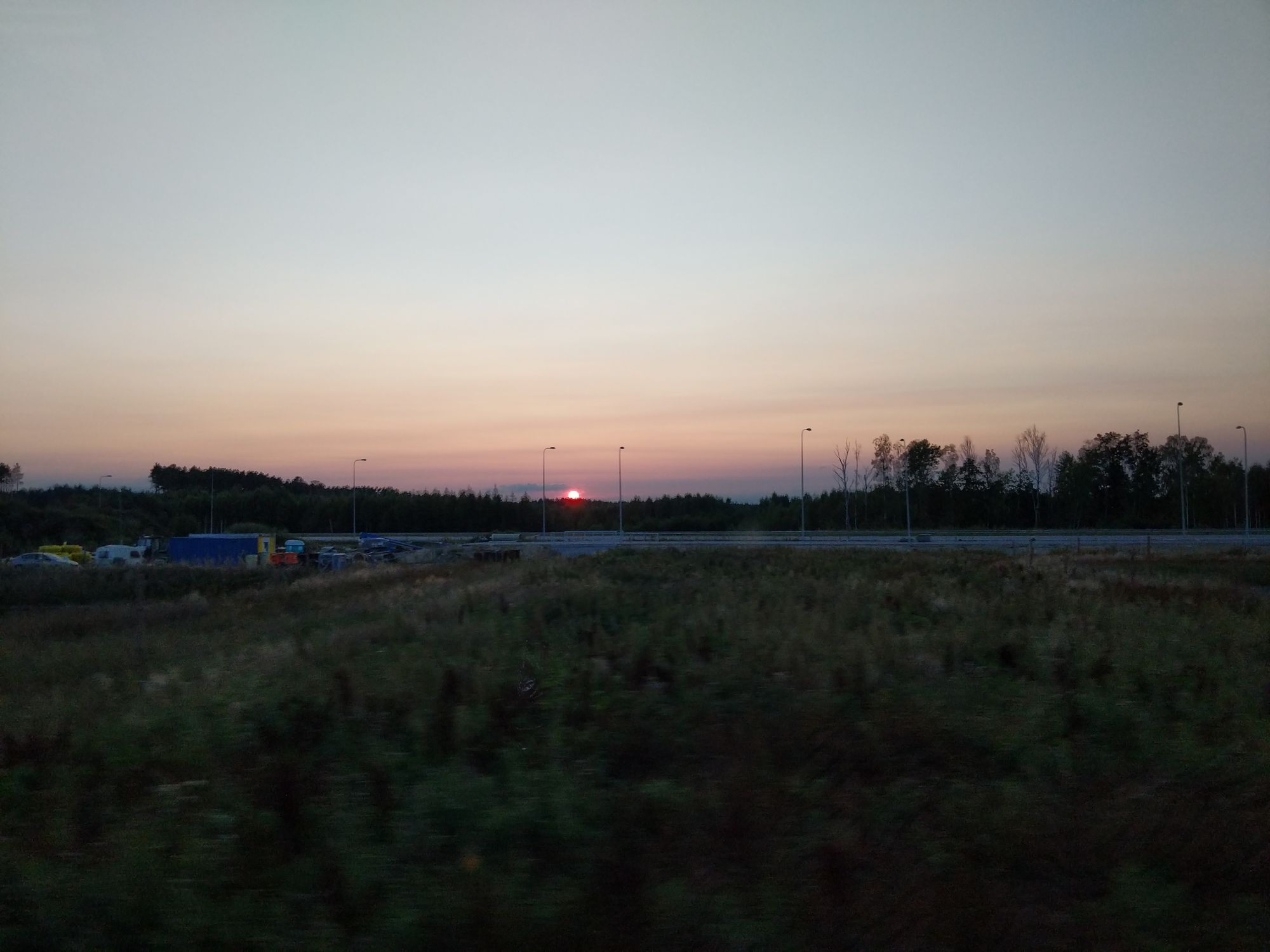
It was a wonderful day, with wonderful countryside, and an unforgettable family-education.

